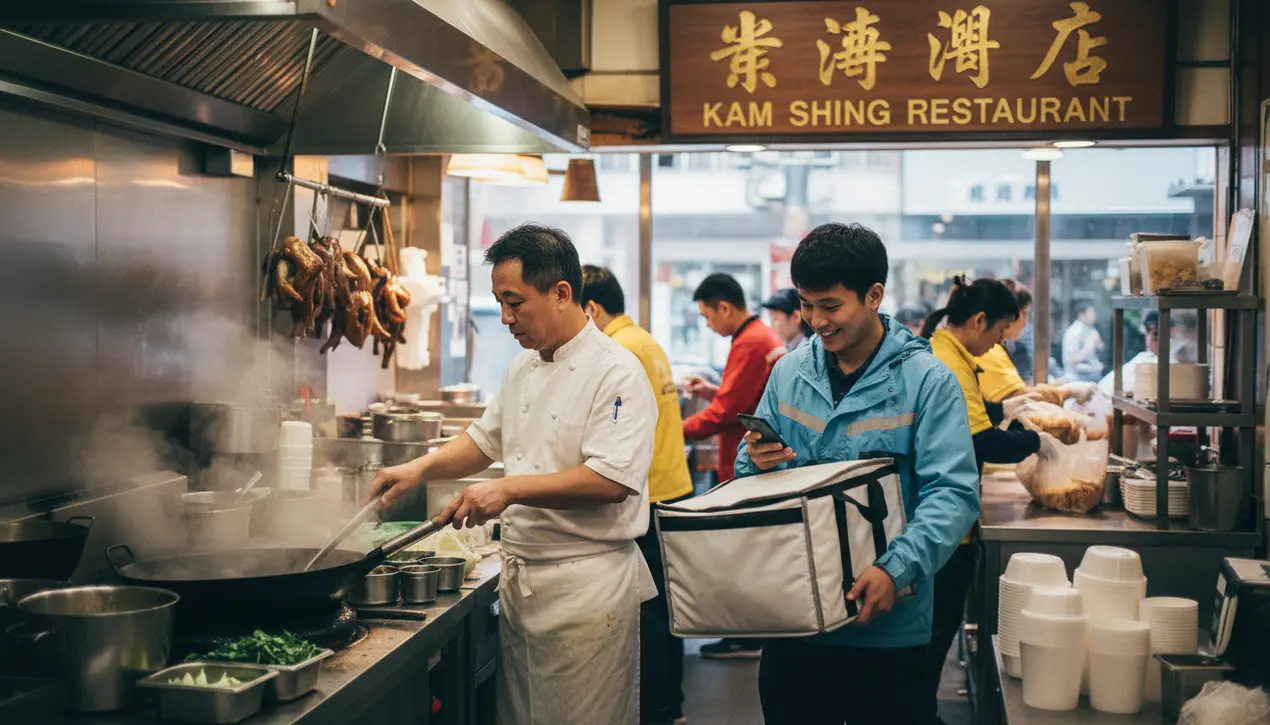
CryptobitcoinRegulation and Compliance
Hong Kong food delivery market to see cheaper meals after antitrust action.
AN
Andrew Blake
2 hours ago7 min read
Hongkongers might soon find their favorite takeaway meals becoming noticeably cheaper, a welcome shift in a city known for its high cost of living, following decisive antitrust action by the city’s Competition Commission aimed at curbing the dominance of a single food delivery platform. This intervention, which compelled the platform Keeta to lift its restrictive exclusivity clauses on partnering restaurants, represents a significant move towards fostering a more competitive and equitable market landscape.For small business owners like Aman Kwok, the second-generation proprietor of the 50-seat Kam Shing Restaurant in Shau Kei Wan, this regulatory change is not merely a bureaucratic victory but a tangible lifeline; it liberates establishments from the stranglehold of being forced to choose a single delivery partner, thereby enabling them to negotiate better commission rates and, crucially, pass those savings directly to the consumer through lower menu prices. This scenario echoes a classic economic principle often explored in Wikipedia dives on market structures: the transition from a monopolistic or oligopolistic market, where a few players can dictate terms, to a more competitive one where multiple platforms must innovate and compete on service quality, fees, and ultimately, the value offered to both restaurants and diners.The implications extend far beyond a few dollars saved on a bowl of wonton noodles; this is about reshaping the digital ecosystem of a global city. Hong Kong's food delivery scene, once a fierce battleground, had seen market consolidation that risked stifling innovation and inflating costs for everyone involved, a pattern observable in other global metropolises from London to New York.By dismantling these anti-competitive barriers, the watchdog has effectively leveled the playing field, allowing newer or smaller platforms to gain a foothold and compelling the incumbent giants to re-evaluate their strategies. For the average consumer, this could mean not just lower prices but also a wider array of culinary choices, improved delivery times as companies compete on efficiency, and potentially more loyalty benefits.From a broader perspective, this action signals Hong Kong's commitment to enforcing its competition laws with vigor, sending a clear message to other digital platform giants in sectors from e-commerce to ride-hailing that similar practices will not be tolerated. It’s a fascinating case study in how regulatory oversight can directly impact daily life and local economies, a topic that blends politics, economics, and sociology into a single, compelling narrative about power, fairness, and the future of urban consumption.
#featured
#Keeta
#food delivery
#antitrust
#Hong Kong
#competition
#restaurants
#pricing
Stay Informed. Act Smarter.
Get weekly highlights, major headlines, and expert insights — then put your knowledge to work in our live prediction markets.
Related News
Comments
Loading comments...
© 2025 Outpoll Service LTD. All rights reserved.